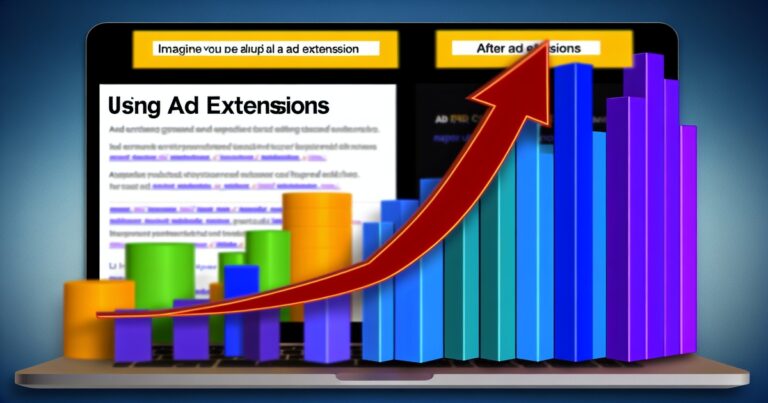Navigating the world of Pay-Per-Click (PPC) advertising can feel like steering a ship through uncharted waters, especially. Since its inception in the late 1990s, PPC has evolved into an indispensable tool for digital marketers aiming to maximize online visibility and drive targeted traffic. However, without a solid grasp on budget management, even the most promising campaigns can flounder, draining resources with little return. This post dives deep into strategies that ensure every penny of your PPC budget is working hard for you, turning clicks into customers and maximizing ROI in this ever-competitive digital landscape.
Key Takeaways
- Effective PPC budget management begins with a deep understanding of your campaign goals and market dynamics, ensuring that every dollar spent contributes to meeting your objectives.
- Allocating your budget wisely across different platforms and campaigns by assessing their performance and potential ROI is crucial for maximizing results.
- Regular monitoring and analysis of campaign performance are essential for making informed adjustments to your PPC strategy, allowing for real-time optimization.
- Adjusting your budget in response to market dynamics and consumer behavior trends can help maintain or improve campaign effectiveness over time.
- Pre-launch planning, including thorough research and setting clear objectives, lays a solid foundation for budget efficiency and campaign success.
- Exploring advanced budgeting techniques and solutions can provide a competitive edge, enabling more sophisticated management of your PPC investments.
Understanding PPC Budget Management
Importance
PPC budget management is crucial. It helps you get the most out of every dollar spent. By carefully managing your budget, you can maximize ROI and ensure that your marketing efforts are not wasted.
Without proper budget management, it’s easy to spend too much. This can drain resources fast. Aligning your PPC spending with your overall marketing goals is essential for success. It ensures that every campaign contributes towards achieving these objectives.
Defining Budget
The size of a business and its revenue play a big role in setting a PPC budget. A small startup will have different financial capabilities than a large corporation. Therefore, budgets should be scalable and flexible.
Your campaign objectives also dictate how much you should allocate to PPC advertising. If the goal is aggressive growth, investing more might make sense. Competition within your industry affects how much you need to spend to stand out. In highly competitive markets, higher budgets may be necessary to gain visibility.
Calculating Budget
To calculate an effective PPC budget, start by considering the cost-per-click (CPC) and how many clicks you aim for. This gives you a basic framework for what your spending might look like.
Historical performance data is invaluable here. It provides insights into what has worked well in the past. Seasonal trends also impact PPC costs and effectiveness. During peak seasons, costs may rise due to increased competition for ad space.
Strategies for Budget Allocation
Daily Budgeting
Setting a daily budget is crucial for maintaining a steady ad presence. It ensures your ads are visible every day. This approach allows you to make adjustments based on daily performance.
By setting limits, you prevent all your budget from being used up too quickly. Imagine launching a campaign and using up the whole month’s budget in a week. A daily cap prevents this.
Shared Budgets
A shared budget can be spread across multiple campaigns. This method is especially useful if you’re running several campaigns with varying priorities but want to maintain flexibility in how much each receives.
For instance, if one campaign performs better, it might get more funds automatically. Here’s why shared budgets work:
- They offer spending flexibility.
- They help prioritize ad groups effectively without manual intervention.
Monthly Budgets
Planning with monthly budgets aligns your PPC efforts with broader financial planning and billing cycles. It simplifies tracking and analyzing monthly performance trends.
Consider an e-commerce store preparing for holiday sales; setting a higher monthly budget during peak shopping times makes sense. Thus, monthly budgets support strategic allocation over longer periods.
Automation
Automation tools save time by making adjustments that would otherwise require manual effort every day or hour. These tools use algorithms to optimize spending efficiently based on real-time data analysis.
Imagine your ads perform exceptionally well on weekends due to increased online activity; automation can adjust bids accordingly without human intervention.
Optimizing Campaign Performance
Ad Schedules
Ad schedules are crucial for PPC budget management. They allow advertisers to show ads during peak hours. This maximizes visibility when users are most active. It also reduces spend during low activity times, saving money.
By tailoring ad schedules to audience behavior, campaigns become more efficient. For example, a business targeting professionals might focus on weekdays during work hours. A restaurant could target evenings and weekends instead.
Smart Bidding
Smart bidding uses machine learning to optimize bids. It focuses on getting more conversions within your budget. This approach adjusts bids in real-time based on how likely each click is to lead to a conversion.
It’s all about focusing on results that matter—conversions and sales—not just clicks. For instance, if your goal is more app downloads, smart bidding will prioritize users who are likely to download apps.
Historical Data
Historical data informs future budget decisions in PPC campaigns. It shows what worked and what didn’t in past campaigns. By identifying patterns and trends, advertisers can adjust their strategies for better results.
This data guides bid strategy adjustments too. If certain keywords consistently perform well at specific times of the year, you’ll want to allocate more budget there during those periods.
Automated Control
Automated control tools monitor budgets without constant manual oversight. They implement rules-based adjustments based on predefined criteria. This ensures adherence to set budget limits while optimizing campaign performance.
Automated controls prevent overspending by pausing or adjusting campaigns as needed. For example, if a campaign exceeds its daily budget early in the day, automated rules can pause it until the next day.
Optimizing PPC campaign performance involves strategic use of ad schedules, smart bidding techniques, historical data analysis, and automated control systems. These methods help manage budgets effectively while aiming for maximum impact.
Adjusting to Market Dynamics
Market Changes
Reacting to industry pricing shifts is vital for PPC budget management. As prices fluctuate, your budget needs adjustment too. This ensures you’re not overspending or underinvesting in potential opportunities.
Adapting to new competitor strategies also plays a crucial role. When competitors launch aggressive campaigns, it might be wise to reassess your approach. Perhaps shifting focus or increasing the budget on certain keywords could keep you competitive.
Lastly, updating budgets based on market demand changes is essential. If demand for products increases during specific seasons, adjusting the budget accordingly can maximize returns.
Competition Analysis
Benchmarking against competitor spending offers insights into market standards. Knowing how much others spend helps set realistic budgets and goals for your campaigns.
Identifying gaps in keyword coverage can reveal untapped opportunities. By analyzing competitors’ keyword strategies, you may find valuable keywords they’ve overlooked. Investing in these gaps can improve campaign performance.
This analysis influences the overall budget allocation strategy significantly. Understanding where and how competitors invest their PPC budgets allows for more informed decision-making regarding your own spend.
Budget Distribution
Prioritizing high-performing campaigns ensures efficient use of resources. It’s about putting more money into what works best and reducing spend on less effective areas.
Balancing between brand and non-brand keywords is another critical aspect of PPC budget management:
- Brand Keywords: Usually cheaper and have higher conversion rates but might not always bring new customers.
- Non-Brand Keywords: More expensive but essential for reaching new audiences.
A strategic balance between these two types maximizes both reach and ROI.
Diversifying spend across ad formats further enhances campaign effectiveness:
- Search ads capture users with high intent.
- Display ads increase brand awareness among broader audiences.
- Video ads engage users with compelling content.
Pre-launch Planning
Investment Strategy
A smart PPC budget management strategy starts with aligning your PPC spend with your business goals. This means looking at the big picture and deciding how much you’re willing to invest for certain outcomes. It’s not just about spending money; it’s about investing it wisely.
You should evaluate the return on investment (ROI) of your PPC campaigns regularly. This helps guide where and how much to spend in future efforts. Think of it as a roadmap that keeps you on track towards profitability.
Also, consider long-term growth opportunities when planning your investment strategy. Sometimes, investing more upfront can lead to significant gains down the line. It’s like planting a seed today so you can enjoy the shade tomorrow.
Keyword Research
Keyword research is crucial for effective PPC budget management. You want to find cost-effective keywords that will drive traffic without breaking the bank. These are usually terms that have high intent but lower competition.
Identify high-intent search terms related to what you’re offering. These are goldmines because they attract users ready to take action—be it making a purchase or signing up for more information.
Balance is key in keyword selection. Mix broad keywords that reach a wide audience with specific ones targeting niche groups. This approach ensures coverage across different stages of the buyer’s journey, optimizing spending.
Campaign Hierarchy
Structuring campaigns efficiently is another cornerstone of sound PPC budget management strategies post adjusting to market dynamics from previous sections discussed.
By segregating themes within your campaigns, targeted spending becomes easier and more effective. This method allows for precise control over where each dollar goes, ensuring higher relevance and impact per ad group.
Organize ad groups by priority based on factors such as expected ROI, product margins, or strategic importance. This hierarchy guides budget allocation so that top-priority areas receive sufficient funding while keeping overall costs under control.
Monitoring and Analysis
Budget Pacing
Budget pacing is crucial in PPC budget management. It helps you track how your budget gets spent over the campaign period. This way, you can avoid running out of funds too early.
With proper pacing, you adjust spending based on performance data. For example, if a campaign performs well in the first week, you might decide to increase its budget for better results.
Adjusting pace also means slowing down if necessary. If your ads burn through the budget without good returns, it’s wise to reduce spendings. This ensures funds last throughout the campaign period.
Excel Tools
Excel tools are lifesavers in managing PPC budgets. They allow for detailed tracking using spreadsheets. You can analyze data with custom formulas tailored to your needs.
These tools help with scenario planning and forecasting too. Imagine predicting how changes in ad spend could affect outcomes. Excel makes this possible through simulations based on past performance data.
Furthermore, Excel simplifies complex calculations. You can compare different scenarios side-by-side. This aids decision-making by showing which plan offers better value for money.
Performance Evaluation
Performance evaluation is about measuring success against key performance indicators (KPIs). It shows whether campaigns meet their goals or not. Identifying underperforming areas is critical here. It allows reallocating resources to more successful campaigns or strategies.
Analytics play a vital role in informing future budgets. By analyzing past performances, marketers learn what works best. This knowledge guides them in setting up more effective future campaigns.
Budget Management Solutions
Pros and Cons
Automation in PPC budget management brings efficiency. It saves time by adjusting bids automatically. Yet, it may reduce control over specific campaign aspects.
Manual adjustments allow for precise control but require constant attention. This can be taxing and less efficient than automated systems.
Daily budgets offer consistency. They ensure spending does not exceed limits unexpectedly. However, this approach lacks flexibility to capitalize on sudden market opportunities.
Shared budgets across campaigns simplify management but might starve high-performing campaigns of needed funds.
Individual campaign budgets ensure tailored allocation but increase management complexity.
Profitability Goals
Setting profitability targets is crucial in PPC budget management. Targets should reflect profit margins and ROI expectations. For instance, if a product has a high margin, investing more in its promotion could yield better returns.
Budget allocations must align with these financial objectives to maximize profitability. High-performing channels or campaigns should receive more funding compared to those with lower returns.
Regular profitability analysis helps adjust strategies effectively. If certain keywords or ad groups consistently underperform, reallocating their budget can improve overall campaign success.
Effective Allocation Across Platforms
Channel Allocation
Managing a PPC budget effectively means knowing where to spend your money. Distributing your budget across platforms is crucial. It’s about finding what works best for your business.
You should balance your spending between search, social, and display advertising. Each platform has its strengths. Search can capture users with high intent to purchase. Social media excels in targeting based on interests and behaviors. Display ads are great for brand awareness.
Prioritizing channels that bring the highest returns is smart management. For example, if search ads bring more leads than social media, allocate more budget there. But always keep an eye on performance data to adjust as needed.
Campaign-Level Budgets
Assigning specific budgets to individual campaigns allows for detailed control over spending priorities. This approach ensures that each campaign gets the funding it needs according to its goals.
A campaign promoting a new product might need more funds compared to a retargeting campaign aimed at website visitors who didn’t make a purchase yet. Tailoring funding according to campaign goals helps optimize results while keeping costs in check.
Bidding Automation
Bidding automation uses technology to make managing PPC budgets easier and more efficient. Automated bidding strategies employ AI algorithms that adjust bids in real-time based on set objectives. This reduces manual workload significantly.
By leveraging AI, you target the optimal cost-per-click (CPC) without constant manual adjustments. It’s like having an expert assistant optimizing your bids around the clock for better outcomes at lower costs.
Advanced PPC Budgeting Techniques
High Funnel Keywords
Investing in high funnel keywords is like casting a wide net. It helps catch users at the beginning of their journey. These are broad, awareness-stage keywords. They’re not about making a sale right away but about getting noticed.
By focusing on these terms, you efficiently capture top-of-funnel traffic. This approach brings potential customers into your sphere early on. Then, it’s all about nurturing them down the funnel.
Balancing your spend is crucial here. You shouldn’t put all your money into high funnel keywords alone. Mix it up with conversion-focused terms too. This balance ensures you’re not just attracting visitors but also working towards converting them.
Money Keywords
Money keywords, on the other hand, are where the rubber meets the road in PPC budget management. These are high-converting keywords that have shown they can bring in revenue.
You focus your budget on these because they have a proven ROI impact. They’re typically bottom-funnel phrases that target users ready to make a decision or purchase.
Allocating more funds towards these phrases makes sense because they directly contribute to your bottom line. Prioritizing them means you’re investing where returns are most likely.
It’s like betting on a winning horse; putting more behind what works maximizes your chances of success.
Display vs Search Ads
Then there’s the debate between display versus search ads in managing your PPC budget effectively.
Display ads excel in creating awareness and capturing interest across various websites and platforms. They tend to be less expensive than search ads but might not always lead directly to conversions. Search ads, however, appear when someone actively searches for related terms. They usually cost more but often result in higher conversion rates since they target users with intent to purchase or learn more.
Allocating budget based on channel strengths is key here. For instance, if brand awareness is your goal, leaning into display could be beneficial. But if immediate conversions matter most, search might deserve a bigger slice of the pie.
Diversifying spend across both channels captures a wider audience. Some people may see your display ad and later convert through a search ad. This multi-touchpoint approach covers more ground in guiding potential customers through their buying journey.
Closing Thoughts
Navigating the waters of PPC budget management can feel like a tightrope walk, but armed with the right strategies and tools, you’re set to make that walk look like a stroll in the park. From understanding the basics to mastering advanced techniques, it’s all about keeping your eyes on the prize: optimizing campaign performance while staying flexible in the ever-changing digital marketplace. Remember, every penny counts, so planning, monitoring, and adjusting your PPC budget wisely can turn potential pitfalls into stepping stones towards achieving your marketing goals.
Now’s the time to take control of your PPC budget and steer your campaigns towards success. Dive deeper, experiment with new strategies, and don’t shy away from leveraging technology to keep your budget on track. Your next breakthrough could be just one well-planned campaign away. Ready to crush those targets? Let’s get clicking!
Frequently Asked Questions
What is PPC Budget Management?
PPC Budget Management involves strategically controlling your spending on pay-per-click campaigns to maximize ROI. It’s like juggling where every dollar needs to land in the right spot for the best show.
How do I allocate my PPC budget effectively?
Start by setting clear goals, then distribute funds based on campaign performance and market research. Think of it as dividing a pie – you want the biggest pieces going to the hungriest (most profitable) parts of your strategy.
Can optimizing campaign performance help in budget management?
Absolutely! Optimizing means fine-tuning your ads for peak efficiency. It’s akin to squeezing every last drop from an orange; you get more bang for your buck without increasing spend.
How important is pre-launch planning in managing a PPC budget?
It’s critical. Pre-launch planning sets the stage, much like plotting out a road trip map before hitting the gas. This step ensures you’re not wasting resources on dead-end paths.
What should I focus on during monitoring and analysis of my campaigns?
Keep an eye on metrics that directly reflect your goals, such as conversion rates and cost per acquisition. Imagine it as keeping score in a game; these numbers tell you if you’re winning.
Are there any tools that can help with PPC budget management?
Yes, numerous tools offer insights and automation to make life easier, ranging from Google Ads itself to third-party software solutions. Think of them as navigational aids helping steer your campaign ship through stormy seas.









